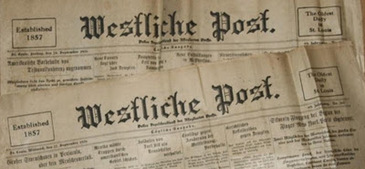Author Spotlight: Joseph Pulitzer
Today’s spotlight is not on a prolific author but rather on a formidable editor.

Joseph Pulitzer was born in Mako, Hungary. He and his parents were one of the few Jewish families that lived in the area. At 17, Pulitzer traveled to Boston as a recruit for the American Civil War. After serving for eight months in the war, Pulitzer returned to New York and then moved to Massachusetts to become part of the whaling industry. When that became too boring for him, he returned to New York and then traveled to St. Louis, Missouri, once he was out of money.
Dazzled with the lights of the city, Pulitzer decided to stay in St. Louis. He took on various jobs to stay afloat. Whenever he was free, Pulitzer spent his time at the St. Louis Mercantile Library, where he read books and studied English.

Pulitzer’s first published story was an accident. While in St. Louis, Pulitzer and several other men were swindled from a supposed job at a plantation in Louisiana. He wrote an account of the events, and it was later accepted by Westliche Post.
With the publicity received from his news piece, Pulitzer got a job at the Atlantic and Pacific Railroad, where he was tasked to record land deeds where the railroad was being planned. Once he was done, the lawyers at the Railroad gave him desk space and let him study law in preparation for bar exams.
In 1867, Pulitzer became a naturalized American citizen after renouncing his allegiance to the Austro-Hungarian Empire. A year later, he was admitted to the bar. However, he was still not very good at English, which kept clients at bay. That same year, he was offered a job at the Westliche Post.
At Westliche Post, Pulitzer worked as much as 16 hours a day. He joined the Philosophical Society and was often found at a German bookstore that was also frequented by many intellectuals. While starting a career in journalism, Pulitzer also dabbled into politics unexpectedly, becoming seated as a state representative at only 22. Pulitzer also started to rise at Westliche Post, where he eventually became managing editor.
In 1872, Pulitzer bought a share in the Westliche Post, which he sold a year later for a profit. In 1878, he purchased both the St. Louis Post and the St. Louis Dispatch, merging them into the St. Louis Post-Dispatch. Through the paper, Pulitzer often featured exposés that championed common people.
By 1883, Pulitzer was already a rich man and had made a name for himself in journalism. He purchased the New York World, which had been losing money. Upon purchase, Pulitzer decided to focus on sensational stories to improve circulation. He also recruited the famous investigative journalist Nellie Bly. In 1895, the World introduced one of its first few strips, The Yellow Kid. The circulation of New York World grew from 15,000 to 600,000. It became one of the largest newspapers in the country.
While many appreciated his work, Pulitzer was not free from criticism. Rival editor Charles A. Dana from New York Sun attacked him in print, while William Randolph Hearst started a circulation war with Pulitzer upon purchasing New York Journal. In 1899, both Hearst and Pulitzer became the cause of the newsboys’ strike of 1899, a campaign led by the youth which forced change in how both their newspapers compensated child newspaper hawkers.
When Pulitzer’s health started to deteriorate, he hired Frank I. Cobb as the new editor of the World. In 1907, Pulitzer’s son took over administrative responsibility of the publication. Pulitzer wrote a resignation letter which was printed on every New York paper, except the World. At first, he took this as an insult, but later on, he started to respect Cobb’s work.
In 1911, Pulitzer passed away while in Charleston Harbor, South Carolina. His last words were Leise, ganz leise (Softly, quite softly). His body was returned to New York City. The New York World ran up until 1931, and by then, many of America’s best reporters had already worked for it.
Pulitzer’s legacy lives on today in various forms. In 1912, the first journalism school, the Columbia University Graduate School of Journalism, was founded after Pulitzer left around two million dollars in his will for the university. The Missouri School of Journalism at the University of Missouri was also founded with Pulitzer’s urging. To this day, both schools remain prestigious in the field of journalism.

However, his most popular legacy is the Pulitzer Prize. The Pulitzer Prize was established in Columbia University in 1917, originally intended to honor various achievements in the field of journalism. It has been expanded over the years to include music, drama, history, poetry, and literature. Today, the Pulitzer Prize is one of the most prestigious award-giving bodies in the field of writing.
Sources:
*Disclaimer: Images are not ours. Credits to its rightful owners.